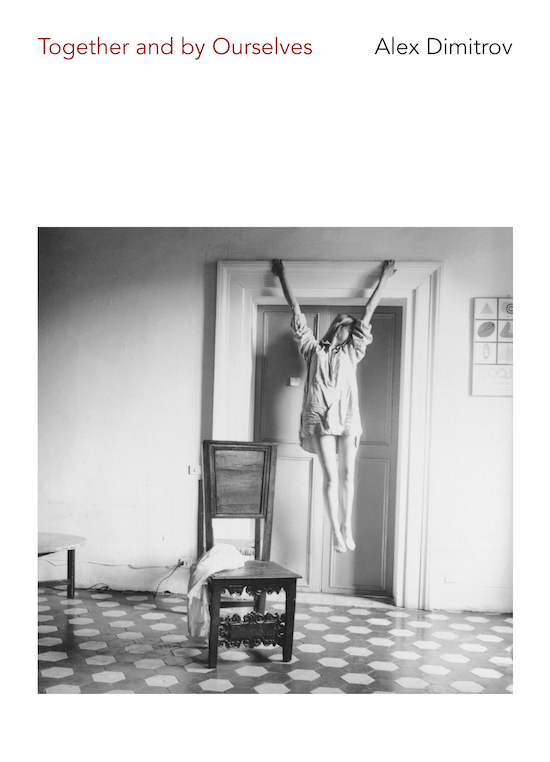Handsome View of a Lifetime
How despite their secrets it was a handsome view of a lifetime.
The viola player we remembered your street by soon moved.
And I suppose that’s how I knew I was happy. I didn’t take photos.
The nights were more than our gossip and part of it too.
For the ice to melt, for the bottles to empty—
we seldom saw ourselves in this forecast as brief.
America went on loudly and we stayed here
but listen: scenery, scenery. Matchbooks with one match.
What people wrote to each other in books no one kept.
And your lawyers. They said there were things we can’t have back.
The eyes. How they look before we go thinking something.
Past your screen the face of a lover or stranger. What difference.
The monks who were asked what they missed and said
missing was not what they felt. Missing missed them.
It may be enough now to walk in these meaningless rhythms.
Rise, think, undress, repeat.
Each week he spoke to the past with real ceremony.
After years of being next to each other—they met.
Salt covered their bodies, myth took them far west.
“Everyone wants to live,” Elizabeth Taylor told Capote.
“Even when they don’t want to.”
In graveyards and countries where no one’s name knows yours.
Where you are most welcome and want to stay least.
The stiff Christmas trees lined each block in that last month.
The New Year’s balloons slowly feathered the floors.
And in the daily order…all the laws and the lawless
there was so much no one could ask for.
Why she lived alone in a village of ninety, believe it.
Why you lived as one in a city of crowds. Well, you did.
With their terms of affection, hurried forms of attention
our shameless century tried to find a shorthand for love.
These affairs of ours should only be felt without touching.
But if you sit close enough, for a while, and do not blink;
you can see they’re not dead. Sad to say, we’re not saints yet.
We’re simply having another and taking it in.
Night Call
When we did then go after each other in those most unreasonable hours.
Twice at the Lowell hotel: bringing you uptown,
bringing you down. Let me walk this situation
and touch each window from within. “I hate funerals.
I’m glad I won’t have to go to my own. Only, I don’t want one—
just my ashes cast on waves.” And that was the beautiful child.
For the short while then, briefly, like the inside of a wrist turned toward you
we forgot we were awful people. Now isn’t that nice,
how animals walk toward what calls them by a name no one can give.
Part of the menu, wardrobe, backdrop…
what did we ask for in fact?
Not always will the sky stay where you live.
On some ship that’s so far down there, where the elevator stops just once.
Lead us into death now said the priest, and the men all wove it in their hair.
Outside the Spanish Steps we took photographs for everyone who wasn’t there.
And I watched a small bird run that yard without its head
so the blood could be a blessing. So you saw someone you love kill something too.
When the head goes there are muscles that keep going.
One of them would call the other if the night called for a smoke.
Remind me then…what is this? Our agreement.
You can watch me while I read you something.
You can have me while I’m here.
Love is difficult for brutes like us—with or without assets.
Agree or disagree?
How the bay made the day feel wide, unlike a tunnel.
My voice had nothing to say after the beep.
Or let me show you: unlimited intimacy
is a kind of poison. So is counting checks or pills or weeks.
And many critics felt he wasted his gifts by going to too many parties
and appearing on too many talk shows.
Yet in some jeweled corridor of their lives
where time was a freedom and hellmate:
the fish circled, openmouthed, and never left the aquarium.
Every lover is a stranger, every stranger a lover all over again.
So I’ve been popular and unpopular.
You’ll be a body on the earth and in the earth too.
(It’s mostly the same thing, mostly the same fear.)
Voracious and bound. They didn’t know it
(and it wasn’t a choice) how we’re truly impossible.
We had to. They had to live here.
Alex Dimitrov is the author of American Boys (2012) and Begging for It (2013). In 2014 he launched Night Call, a multimedia poetry project through which he read poems to strangers in bed and online. Dimitrov is also the founder of Wilde Boys, a queer poetry salon in New York City. His poems have been published in Poetry, The Yale Review, Kenyon Review, Slate, Poetry Daily, Tin House, Boston Review, and the American Poetry Review, which awarded him the Stanley Kunitz Prize in 2011. He is the Content Editor at the Academy of American Poets and teaches creative writing at Rutgers University.


